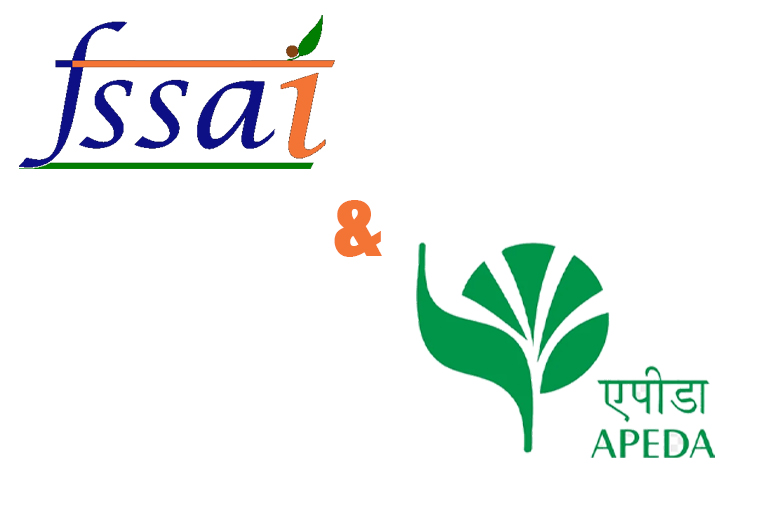In the labyrinth of regulatory frameworks governing food and agricultural products in India, two key players stand out – the Food Safety and Standards Authority of India (FSSAI) and the Agricultural and Processed Food Products Export Development Authority (APEDA). While both entities are integral to ensuring the quality and safety of consumables, they operate in distinct spheres with unique mandates. This article aims to dissect the dissimilarities between FSSAI and APEDA, shedding light on their roles, functions, and the impact they have on the food and agriculture sectors.

Difference Between FSSAI and APEDA?
FSSAI: Safeguarding the Nation's Food Safety
The Food Safety and Standards Authority of India, established in 2006 under the Food Safety and Standards Act, is the primary regulatory body overseeing food safety and hygiene across the nation. FSSAI's core objective is to ensure that food products available in the market adhere to prescribed safety standards, preventing adulteration and promoting public health.
Regulatory Scope and Coverage:
FSSAI's jurisdiction spans the entire food supply chain – from the initial stages of production to the end consumer. It sets standards for food products, issues licenses to food businesses, conducts inspections, and monitors compliance. Whether it's a small local eatery or a multinational food corporation, FSSAI's regulations apply universally.
Licensing and Registration:
One of FSSAI's fundamental functions is the issuance of licenses and registrations to food businesses based on their scale of operation and the nature of the products they handle. This process involves rigorous scrutiny to ensure that the entities comply with safety standards.
Adulteration and Contamination Control:
FSSAI employs a robust monitoring system to detect and prevent the adulteration or contamination of food products. Regular inspections, testing, and surveillance activities are conducted to maintain the integrity of the food supply chain.
APEDA: Cultivating Global Markets for Agricultural Products
In contrast to FSSAI's broad focus on food safety, the Agricultural and Processed Food Products Export Development Authority has a specialized role in promoting and regulating the export of agricultural and processed food products from India. Established in 1985, APEDA operates under the APEDA Act, with a vision to propel India's agricultural exports onto the global stage.
Export Promotion:
APEDA's primary mandate is to promote the export of agricultural products by enhancing their quality and ensuring compliance with international standards. This involves providing assistance to farmers, processors, and exporters in improving production practices and meeting the stringent requirements of global markets.
Product Coverage:
While FSSAI oversees the entire spectrum of food products, APEDA focuses specifically on agricultural and processed food products. This includes fruits, vegetables, meat, poultry, dairy, and other commodities that contribute significantly to India's export portfolio.
Quality Assurance and Certification:
To facilitate international trade, APEDA plays a crucial role in establishing and maintaining quality standards for agricultural exports. It certifies products that meet these standards, instilling confidence in foreign buyers and ensuring that Indian agricultural products are accepted in global markets.
Collaboration and Synergy:
Despite their distinctive roles, FSSAI and APEDA often collaborate to ensure a seamless interface between food safety and export quality. The two entities recognize the interconnectedness of their functions and engage in mutual cooperation to address challenges at the convergence of food safety and international trade.
Conclusion:
In essence, FSSAI and APEDA represent two pillars of India's regulatory framework, each with a specific focus that complements the other. While FSSAI safeguards the domestic population by ensuring the safety and hygiene of food products, APEDA propels India's agricultural products into the global arena by setting and maintaining high-quality standards for exports. Recognizing and understanding the roles of these regulatory bodies is essential for stakeholders in the food and agriculture sectors, as they navigate the intricate landscape of compliance, quality, and international trade.
Read More- How to Mastering PHP as a Beginner: A Comprehensive Guide Read More:- Cracking the Code: Unveiling the Top 2023 TikTok Campaigns
